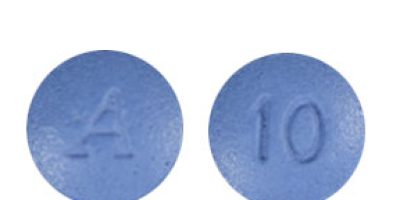Belviq Recall
Belviq was withdrawn on Feb. 13, 2020, and is no longer available in the United States. Belviq was not recalled. Rather, the U.S. Food and Drug Administration requested Belviq's withdrawal from the U.S. market after it found an increased risk of cancer in people who took the drug.
- Last update: April 16, 2024
What To Know About the Belviq Recall
Though you may hear this event called a “recall,” this is a bit of a misnomer. A recall typically involves a company pulling its product off the market because of safety issues, labeling mistakes or dangerous side effects. In Belviq’s case, a clinical trial indicated a cancer risk from lorcaserin, which is its active ingredient. After reviewing this long-term study, the FDA requested that manufacturer Eisai Inc. voluntarily remove Belviq from the market.
The FDA first approved lorcaserin for weight loss in 2012. The FDA requested withdrawal in 2020.
- February 2023: Eisai settled a claim with a plaintiff who alleged Belviq caused her breast cancer.
- September 17, 2020: Eisai withdrew its approval of both Belviq and Belviq XR.
- February 13, 2020: Eisai formally announced its plans to withdraw Belviq.
- January 14, 2020: The FDA requested that Eisai withdraw Belviq from the U.S. market.
- January 14, 2019: The FDA reviewed data from a long-term clinical trial and concluded that lorcaserin carried an increased cancer risk. It announced these findings to the public.
As of 2023, Eisai Inc. stopped including Belviq on its list of global products. If you still have any leftover Belviq, the FDA advises that you discard it safely. Do not flush Belviq down the toilet or put it down the sink. Instead, mix it with items such as cat litter or coffee grounds and dispose of the mixture in the trash.
What Does FDA Withdrawal of Belviq Approval Mean?
The FDA used a multifaceted approach to take Belviq off the market. Eisai chose to discontinue manufacturing the drug.The FDA later discontinued the drug’s approval.
In late 2020, the FDA reversed its approvals of both Belviq and Belviq XR. Eisai voluntarily withdrew Belviq from the market without requesting a hearing, and lorcaserin is no longer sold or marketed in the U.S. as a weight loss drug or supplement. People who have experienced health effects from Belviq are currently seeking medical attention and legal consultations.
What Belviq Health Risks Led to the Withdrawal?
When taken for an extended period of time, Belviq raised the risk of cancer. Some patients developed pancreatic, colorectal and lung cancer after taking Belviq.
This information was first released to the public in 2019 after the FDA reviewed preliminary data. Following a more extensive review, the FDA had enough information to withdraw Belviq.
“We will continue to track safety issues with medications on the market and use science and data as our guide to act quickly when we have determined that the risks associated with drugs are greater than the benefits of treatment.” ”
Immediate side effects and short-term use of Belviq did not appear to pose an immediate danger to patients. Short-term side effects of Belviq were headache, dizziness, back pain and fatigue. Belviq was not withdrawn from the market until research on long-term complications showed the magnitude of the problem.
What To Do if You Took Belviq
Because Belviq is not still on the market, your doctor has likely replaced it with a more suitable alternative. Cancer screenings aren’t currently advised if you’ve previously taken Belviq, but discuss concerns you may have with your doctor. If you suspect that Belviq caused a health problem, contact your doctor right away.
Speaking with an experienced Belviq lawsuits attorney about possibly filing a claim can help you secure compensation for medical expenses and lost wages. A lawyer can help you navigate the filing process and recommend next steps.
Belviq Alternatives For Weight Loss
If you’re searching for an alternative to Belviq, there are several FDA-approved medications on the market. Consider the following options, and be sure to discuss potential side effects and drug interactions with any other medications you take with your healthcare provider.
| MEDICATION | HOW IT WORKS | COMMON SIDE EFFECTS |
|---|---|---|
| Drug: Orlistat Brand Names: Alli, over-the-counter Xenical, prescription | Reduces fat absorbed from food in the gut, blocking lipase (an enzyme that digests fat). | |
| Drug: Phentermine-Topiramate Brand Name: Qsymia | Combination of two medications that decreases appetite and makes you feel full sooner. | |
| Drug: Naltrexone-Bupropion Brand Name: Contrave | Combination of two medications that decreases cravings and helps to control appetite. | |
| Drug: Liraglutide Brand Names: SaxendaVictoza | Injectible medication that works like a hormone, regulating appetite to make you feel full sooner. | |
| Drugs: Phentermine; benzphetamine; diethylpropion; and phendimetrazine | Appetite suppressants that are only FDA approved to use for up to 12 weeks. They work with chemicals in your brain to make you feel you are full or not hungry. |
Diabetes drugs not originally designed for weight loss — such as semaglutide (Ozempic) and liraglutide (Saxenda) injections — are often prescribed off-label for weight loss purposes. These aren’t harmless supplements, and they should only be used carefully and under medical supervision.
Off-label use of diabetes drugs and the demand for them for weight loss has been linked to recent shortages of drugs for people who need them for diabetes. Only your doctor can prescribe and recommend the ideal weight loss drug for your situation.
Calling this number connects you with a Drugwatch.com representative. We will direct you to one of our trusted legal partners for a free case review.
Drugwatch.com's trusted legal partners support the organization's mission to keep people safe from dangerous drugs and medical devices. For more information, visit our partners page.

